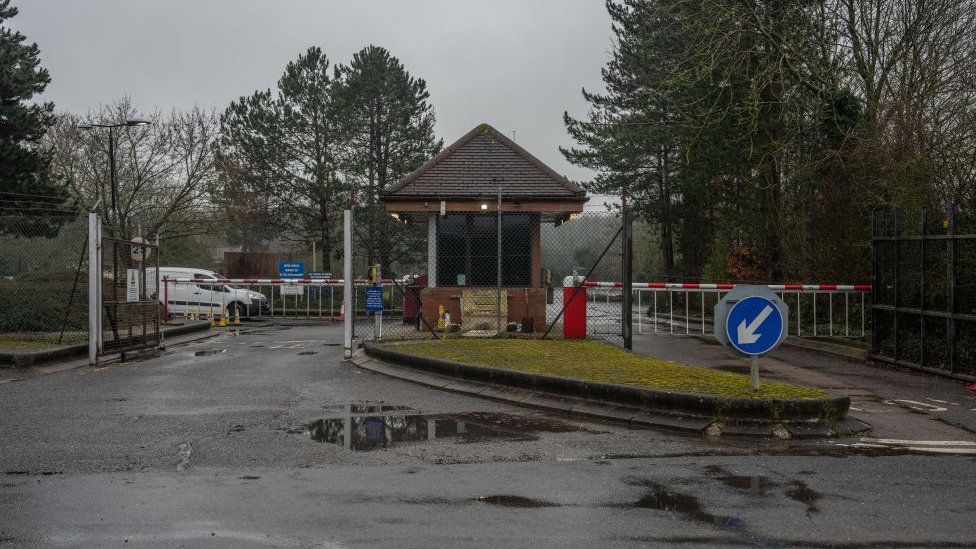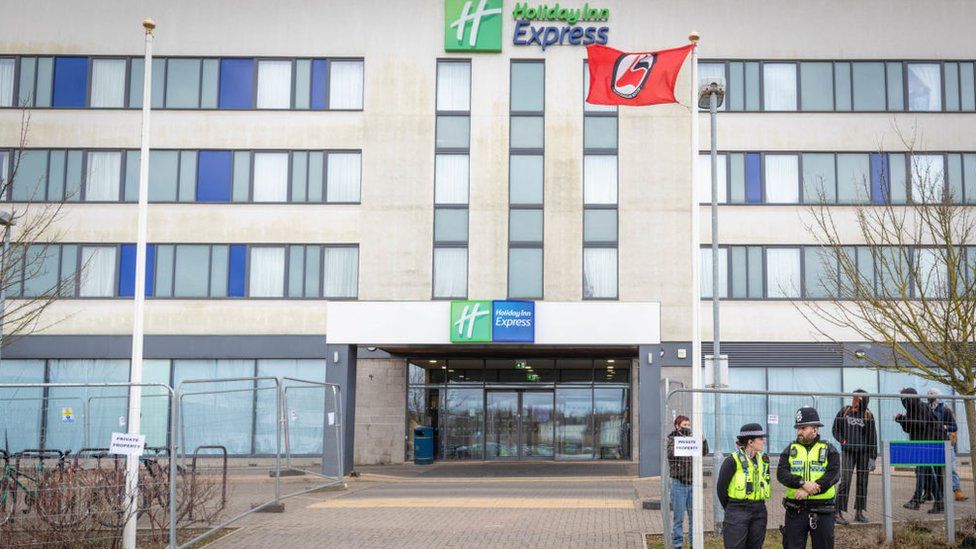
Plans to move away from using hotels to house asylum seekers and instead place them on ferries, barges and ex-military bases are set to be unveiled by the government on Wednesday.
Immigration minister Robert Jenrick is to make the announcement, billed as a "move to rudimentary accommodation".
The UK says it is spending £6.2m a day on hotels for asylum seekers.
However the plans, and the new locations themselves are likely to prove controversial.
Mr Jenrick is expected to say that people arriving in the UK through unauthorised means will be housed at several ex-military sites.
The BBC understands the government has already secured the necessary planning changes needed to repurpose former bases in Lincolnshire and Essex, and both could be in use within weeks.
But it is thought while plans to use ferries and barges are under consideration they are not at an advanced stage, with details including how many vessels are needed and where they will be moored unlikely to be confirmed today.
Foreign Secretary James Cleverly has previously criticised plans to house asylum seekers at the base near the village of Wethersfield in his Essex constituency of Braintree.
He said the site was "inappropriate" because it was remote and had limited transport infrastructure.

It is expected Mr Jenrick will also announce that the Home Office will use the RAF Scampton site - home of the Dambusters during the Second World War - near to the village of Scampton in Lincolnshire.
Sir Edward Leigh, the Tory MP for the area, has previously criticised the choice.
A deal had been agreed in March to allow West Lindsey District Council to purchase the base from the Ministry of Defence as part of a £300m regeneration project of the site for commercial activity, heritage, tourism and research.
Government sources say each site will have the capacity to house 1,500-2,000 migrants, and initially are more are likely to be used for new arrivals rather than to rehouse people currently in hotels.
The government is considering using a "giant barge" capable of holding hundreds of people, according to the Times with a government source telling the paper it would have a "deterrent effect" on people arriving in small boats.
Disused cruise ships, empty holiday parks and former student halls have also under consideration as alternatives to hotels.
The BBC understands more than 51,000 people are being housed in 395 hotels currently.
Mr Sunak told his cabinet on Tuesday that cost of the current approach and pressure it put on local areas was not sustainable, according to No 10.
At a House of Commons Liaison Committee, the prime minister said children cannot be exempted from plans to detain people who cross the Channel in small boats to prevent the creation of a "pull factor".
It comes as the government's asylum proposals laid out in the Illegal Migration Bill are being debated in Parliament.
The legislation aims to stop migrants claiming asylum in the UK if they arrive through unauthorised means, by crossing the English Channel in small boats.
Asylum seekers could be detained without bail or judicial review for 28 days before being removed to their home country or a safe third country like Rwanda.
A government spokesperson said: "We have always been upfront about the unprecedented pressure being placed on our asylum system, brought about by a significant increase in dangerous and illegal journeys into the country.
"We continue to work across government and with local authorities to identify a range of accommodation options.
"The government remains committed to engaging with local authorities and key stakeholders as part of this process."

- MISSING GOLD: The inside story of Britain's biggest gold heist
- FROM A BEDROOM SINGER TO A MUSIC STAR: Which unsigned artist has what it takes?

https://news.google.com/rss/articles/CBMiJmh0dHBzOi8vd3d3LmJiYy5jby51ay9uZXdzL3VrLTY1MTA3ODI30gEqaHR0cHM6Ly93d3cuYmJjLmNvLnVrL25ld3MvdWstNjUxMDc4MjcuYW1w?oc=5
2023-03-29 07:13:47Z
1871359893
Tidak ada komentar:
Posting Komentar